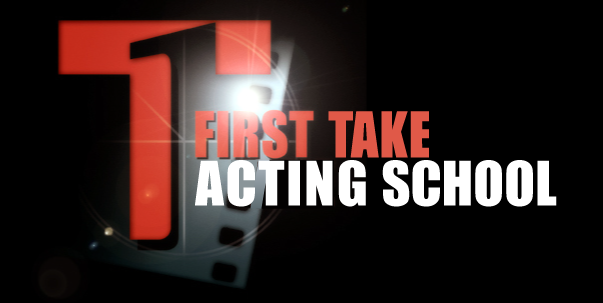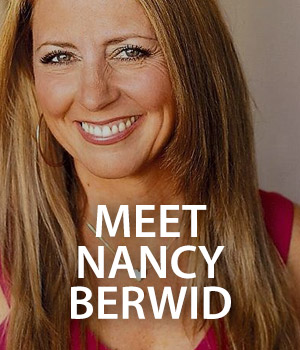Have you ever been curious about what it takes to be successful in the entertainment business? Have you ever imagined what it would be like to actually make a living doing what you love? We are thrilled to give you an inside look into all of that and more-welcome to a new feature at First Take, what we like to call the Actor Spotlight, where we interview some successful First Take alumni about their journey, get some insight and wisdom about acting and the business, and learn what it really takes to be successful in Hollywood.
We got a chance to catch up with the hilarious and humble Robert Wu, a long-time First Take Alumnus. Robert’s journey and success is especially unique: in a time when Hollywood is still slow to reflect the true faces of America and Asians in particular, his current role on the hit Starz’s comedy Survivor’s Remorse is truly significant.
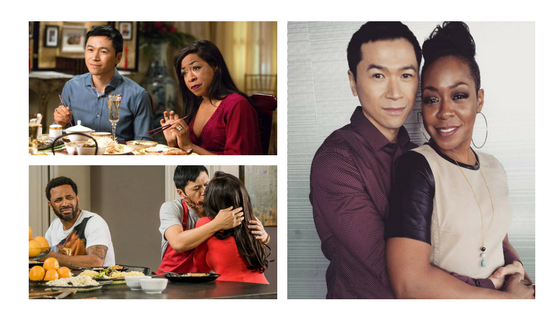
On the set of Survivor’s Remorse
Robert talked about First Take and how it influences his work. “I love Nancy (First Take Founder). I think she’s been such a champion for me, she was with me through some of those lean times. To have that weekly workout is just immeasurable. Acting is like a muscle-one of the most important muscles-you have to keep working it, you have to keep yourself immersed in it. Like during lean times…just to keep working that muscle. You do that through your own stuff, doing YouTube, doing plays or staying in class and staying active in class, and Nancy has been great with that. The methods she uses… I still use… she had a thing called Virtual 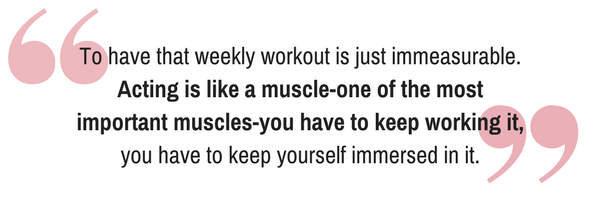 Reality, which was great, she’s got this really cool comedy method too. Having partners to work off of… it’s one thing to be in your own place, running lines, doing stuff on your own-but to have actual physical human connection and communication what you can get out of a great acting class is immeasurable. I mean it’s invaluable. So I really loved those aspects of class for sure.”
Reality, which was great, she’s got this really cool comedy method too. Having partners to work off of… it’s one thing to be in your own place, running lines, doing stuff on your own-but to have actual physical human connection and communication what you can get out of a great acting class is immeasurable. I mean it’s invaluable. So I really loved those aspects of class for sure.”
With a wide range of work under his belt, including Ming on Ted, voice work on Family Guy, roles in The Shield, Bones, Criminal Minds and various film and TV projects, it was crazy to learn that he didn’t even originally start out pursuing acting. The self-proclaimed “late bloomer” has a background in academics and originally studied to become a physical therapist. His first audition was on his birthday, on a whim, for a lead part in a play (which he got) and later toured with abroad in Scotland, and he’s been acting ever since.
But as varied as his career has been, he isn’t in it for the fame,money or the IMDB credits, for Robert “…you’re not here just to act, to become a so-call
ed star, but you’re here to tell incredibly relevant stories that are to impact the world…” Read on to learn more of what Robert shared about the the bigger picture, his joy of being a story teller, and the role that Fresh Prince and the Rocky movies had in inspiring him to pursue acting…
First Take: Do you have any advice for starting actors?
Robert Wu: I would say first; you have to believe in yourself. You have to believe that there’s a bigger picture to you getting
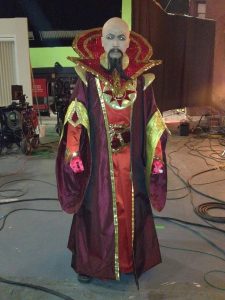
On the set of Ted
in the business than just your personal success. Than just your own game, I think when you can see that there is a difference between a job and a calling-if you feel like you’ve been called to this, that kind of passion, where come hell or high water, I’m sticking it out. It’s not easy, because I’ve had high water, I’ve had hell, and I’ve had times where I said “God, should I still be doing this? I’m kind of sinking here!” And then boom, a little job or a blessing will come my way and then say, “Ok, I’ll keep going.” And then it happens again and I’ll go “Well, God…” and then boom-a little job or a blessing. And then I’ll go and I’ll keep going…keep going, keep going.
And we need that because we’re only human, we need those little blessings, those little encouragements. That’s another thing, give yourself credit for the little things. Like showing up for class, … or working on your scenes, memorizing your lines, or taking time to do an imagination exercise or something. But it’s not like a 9-5 job, it’s a 24-hour job. You eat, sleep, breathe acting…. I know when I first got into it, I just wanted to get co-star, co-star, co-star, make money, money, money, …paying my bills, whatever-it just gets old real fast. Because when you see your auditions-to-bookings ratios, you’ll think ‘oh, this is not looking so good.’ It makes you discouraged. It makes you think maybe I’m not supposed to be doing this…. That’s when it’s time to act by any means necessary. Do theater, do YouTube sketches, do whatever you get your hands on. …And really listen to your spirit, listen to yourself as you’re immersing yourself into those places, are you enjoying yourself? Because you have to love it. Because at the end of the day, if you don’t love it, if you don’t have a passion for it, you need to get out. It’s not going to serve you well. But if you love it, have a passion for it, you can survive the lean times. Then you know you’re destined for greatness. Because greatness is within you. You can hang on to that. And you can know that time and chance are going to happen to [you]. … And just be thankful for the blessings that [you] have. Work on the things that you can and just believe and have faith that there’s brighter days ahead. That’ s the place I’ve come to. …I learned all these over time, though. I mean, I went through all this stuff. Who knows, I might still in the future, but if you don’t keep focus on the big picture then you won’t be able to sustain yourself through the lean times. That’s what keeps me going- this passion to tell stories and to believe I’ve been called to do it, that this is what I’m supposed to do.
s the place I’ve come to. …I learned all these over time, though. I mean, I went through all this stuff. Who knows, I might still in the future, but if you don’t keep focus on the big picture then you won’t be able to sustain yourself through the lean times. That’s what keeps me going- this passion to tell stories and to believe I’ve been called to do it, that this is what I’m supposed to do.
FT: What are some of your favorite acting moments?
RW: It varies from project to project. I love doing, comedy and making people laugh and telling good stories that are funny, and then I also love really good dramatic moments in story lines that can really touch the heart of people. One of the big things that I was doing for a while was this play and we would go into churches and prisons and it was about men on death row and it was a comedy… It was great because you could really feel like you were giving back and it wasn’t for a paycheck or a review or anything. It was to really impact people’s lives.
FT: That’s really interesting that the genre, the way you set that up, I never would have guessed that would have been a comedy.
RW: Yeah, it’s funny, I am the comic relief of the play, I had my really serious moments, too. Really when you talk about subjects like life and death and balance of redemption you got to really find some light moments somewhere.
FT: You’ve done a variety of different things, just looking at IMDB it goes back to 1997, which was Nash Bridges and I was wondering when was your first role as an actor? Was that it?

Behind the scenes of The Last Appeal
RW: It was in ’97, what happened was–I’m dating myself here– I finished college-I’m actually what you can call a role model for all the late bloomers out there-because I graduated college in exercise and physiology –I was going to become a physical therapist. And it was my birthday one year and I said ‘You know what, I want to try something different’. I was watching this documentary, it was an autobiography about Will Smith and he’s talking about how he booked Fresh Prince of Bel Air and he said “I basically watched a few hours of T.V. and then I went in to do the audition.” And I said well, hell I’ve been watching T.V. all my life, I can do this! So I literally, on my birthday, I went out and auditioned for a play–I had no acting experience, no classes, nothing and I booked the lead! So that was my first acting gig, and we went and took that play into Scotland later. So that was pretty awesome.
FT: You’re one of the folks who’ve certainly lived up here but then went down to Los Angeles-could you talk about your first L.A. audition?
RW: Oh my gosh, can I even remember that?! I don’t remember the very first L.A. audition…I remember the first L.A. job, I remember the first L.A. feelings- so when I moved out there, it was real interesting, because I’m Asian-American, and I [said] “I’m not going to be pigeon-holed, I’m not going to be classified, when I move out there I’m going to play all the Brad Pitt roles, the Tom Cruise roles…”and it’s a great thing to be a dreamer, it’s a great thing to have that sky’s-the-limit attitude-but one of my good friends I did Cal Shakes with, and he was a graduate of Yale School of Drama and everything, but he’s a character actor. He’s short, small, kind of nebbish and he had a recurring part on a T.V. show playing that type of character and he says “Robert, if they don’t know where to put you, they’re not going to put you anywhere at all.” It just got me thinking “Wow, what is this I’ve gotten into?!” So I decided in the long run to play the game for a little bit, I started to get whatever parts that I could and then from there to branch off and really started to create my own parts, started to write a little bit, wrote some plays, screenplays, some shorts, producing shorts-and really got to sink my teeth into some really strong material. The thing with moving to L.A. -and I think acting in general- I don’t know how people get through Hollywood without some kind of faith, without believing they’re called to this, and that there’s a bigger picture to it 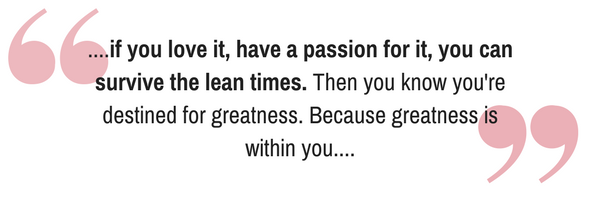 all, and then to persevere through the lean times-because there are definitely lean times, you know? You’ve got to believe for a better day. Because there’s going to be those points where you’ll want to give up-believe me, I’ve had those points-you’ve just got to push through and just believe [that] your time is coming, you just got to hang on. And that’s how it worked out for me.
all, and then to persevere through the lean times-because there are definitely lean times, you know? You’ve got to believe for a better day. Because there’s going to be those points where you’ll want to give up-believe me, I’ve had those points-you’ve just got to push through and just believe [that] your time is coming, you just got to hang on. And that’s how it worked out for me.
FT: That’s interesting because a lot of actors can relate to that. And it’s interesting because that actually brings us to the next questions: What is the hardest part about acting and how do you keep yourself inspired?
The hardest part about acting-it’s sad because it’s such a trivial thing- [the hardest part is] the rejection. I mean there’s no lie when people say you have to have a really thick skin in this business, because you can take things personal, you can take things that’ll draw insecurity but it’s not personal, it’s just business. You have to keep looking at the big picture. And to this day, that doesn’t get any easier. But that’s OK. Once you start to see the bigger picture of it all [that] you’re not here just to act, to become a so-called star, but you’re here to tell incredibly relevant stories that are to impact the world. There’s a story in each and every one of us that needs to be told, that has a longing to be told, and that story can impact the life of your fellow man, you know? Your fellow man and woman. It’s that drive to be able to leave something on the table greater than just a performance. But more leaves people saying ‘Wow, that really moved me,” or “that made me think of this a different way” or “wow, I never saw it like that…”
Even though I was a late bloomer with the acting… what really propelled me into it, when I was a little kid I would go and watch those Rocky movies and I would
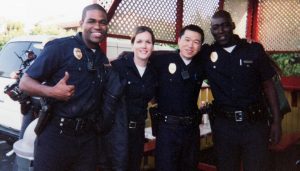
On the set of The Shield
walk out of the theater and I would want someone to come and pick a fight with me in the lobby because I wanted to SHOW DOWN! …Over time as I grew older, I wanted to be able to invoke that in somebody, because that’s a powerful medium to be able to create that kind of emotion in somebody; that’s a beautiful thing. Even though I said on a whim “I’m going to go audition for this play…” deep down, I’ve always had it in me, that desire- I feel that everyone should have this desire-to want to leave the world better [than they found it], for me it’s telling great stories, stories that can impact the world and really make a change, you know, a lasting impression-that’s what keeps me going.
FT: What is your favorite part about acting?
RW: To be able to move the audience, to be able to move myself. …My upbringing was very much reserved in terms of emotion. If people have a scale of 1-10 in their emotional range, my family’s about 1-3 (hahaha). There’s …-angry, neutral…and you know, that’s it! I mean, my mom passed away and my dad didn’t even cry at her funeral. It’s just this inherent quality of [saving] face and not showing emotion. So I started challenging myself, I started writing plays. I wrote a play about my brother who had passed away, I never got the chance to tell him I loved him. And I had to come back to him as a spirit and try to convey all the mixed emotions and feelings. That brought me to a real powerful place I never touched as a human being.

On the set of The Good Guys
FT: What kind of roles are the toughest for you to get into?
RW: You know it’s different for different situations. Cause with comedy, I love comedy and people have always told me I have great timing, which is really important for comedy, but with comedy the difficult part I feel like is you really got to catch the rhythms. Cause there’s different rhythms to different comedies. …They all have their place, they’re all funny in their own way, but there’s definitely different types of comedy, and then drama, you know, drama is just really tapping into that real place in yourself. And if it’s foreign to you, then it makes it harder because you’ve never experienced that…you want to take a piece of yourself or find yourself in the [role]. But then you also have to hang on to wants and needs, of that [role] as well. What they want and you know try to substitute a real place, a real thing that you can relate to, and grasp on to something that hits home for you.
FT: Have you ever had a situation where you’ve said “Oh my gosh this is so far from who I am”?
RW: Yeah, of course I have! I’ve finally accepted the fact that I am a character actor. That’s my niche or whatever I’m finding the character that’s my niche. I’ve played every race under the sun…I’ve played a lot of villains, and victims and nerds, and a lot of different types of characters, archetypes. I’ve always made them human; I’ve always made them layered I’ve always fleshed them out as best as I can with the given material. And that’s such a gift with this role I’m playing now because I’m getting more back story through the dialogue. There’s a difference between doing one episode, four episodes, fifteen episodes. The more you do, the more you know about the charact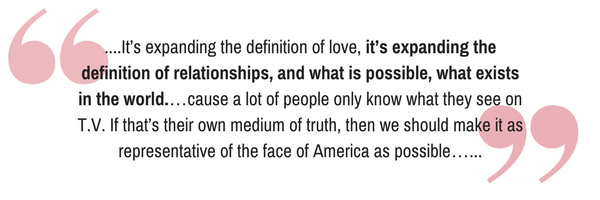 er, the more you can flesh out. Perfect example: we did that play, we toured that play for seven or eight years or something and you know even in that eighth year, I was so locked in, I was still discovering new things. It was an awesome beautiful thing to still make discoveries… You’ve got to be a consummate student of your [role], because there’s always more to learn. Right now I’m playing a romantic lead. It’s foreign to me, because I’ve never done it. I’ve played in short films, but never for this long of a duration. And never to this in depth of a role, and so it’s been great, there’s all these new discoveries. And it’s really opened the door…. I feel the writers and producers of this show, they’ve expanded the definition of love. Because I’m in an inter-racial relationship, I’m Asian, but my partner is African-American, and you never see that on T.V. I mean, they are pushing the envelope. Cause when I was growing up it was either white-white, or black-black, something risqué would be black-white or something like that. But Asian-black? No way, they just wouldn’t do it. But the thing is you have to start representing the face of America; …it’s like that whole “Oscar is so white” controversy that’s going on. It’s been that way for a while. So I think this has just been revolutionary for me. …It’s expanding the definition of love, it’s expanding the definition of relationships, and what is possible, what exists in the world.…cause a lot of people only know what they see on T.V. If that’s their own medium of truth, then we should make it as representative of the face of America as possible…It really is an under-represented, untapped community…. Again, what I’m saying to evoke change through your art, I think should be the primary purpose of it, because then you’re working for more than just a paycheck, more than just another IMDB credit, you really want something that gives you the passion to get up every day and do it again.
er, the more you can flesh out. Perfect example: we did that play, we toured that play for seven or eight years or something and you know even in that eighth year, I was so locked in, I was still discovering new things. It was an awesome beautiful thing to still make discoveries… You’ve got to be a consummate student of your [role], because there’s always more to learn. Right now I’m playing a romantic lead. It’s foreign to me, because I’ve never done it. I’ve played in short films, but never for this long of a duration. And never to this in depth of a role, and so it’s been great, there’s all these new discoveries. And it’s really opened the door…. I feel the writers and producers of this show, they’ve expanded the definition of love. Because I’m in an inter-racial relationship, I’m Asian, but my partner is African-American, and you never see that on T.V. I mean, they are pushing the envelope. Cause when I was growing up it was either white-white, or black-black, something risqué would be black-white or something like that. But Asian-black? No way, they just wouldn’t do it. But the thing is you have to start representing the face of America; …it’s like that whole “Oscar is so white” controversy that’s going on. It’s been that way for a while. So I think this has just been revolutionary for me. …It’s expanding the definition of love, it’s expanding the definition of relationships, and what is possible, what exists in the world.…cause a lot of people only know what they see on T.V. If that’s their own medium of truth, then we should make it as representative of the face of America as possible…It really is an under-represented, untapped community…. Again, what I’m saying to evoke change through your art, I think should be the primary purpose of it, because then you’re working for more than just a paycheck, more than just another IMDB credit, you really want something that gives you the passion to get up every day and do it again.
Be sure to catch Robert on the Starz’s Survivor’s Remorse!
Watch our FREE 3-part Video Training Series
1. Could I be a Working Actor?
2. How to Enter and Exit an Audition
3. How to Dress for an Audition
By submitting this form, you are consenting to receive marketing emails from: First Take, 15466 Los Gatos Blvd., #109-58, Los Gatos, CA, 95032, https://www.firsttake.org. You can revoke your consent to receive emails at any time by using the SafeUnsubscribe® link, found at the bottom of every email. Emails are serviced by Constant Contact
